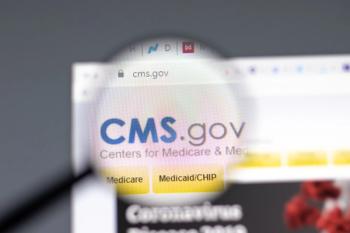
Kaiser Permanente Study Finds Self-Reported Health Information Helps Predict Inpatient Admissions and Costs
Predicting health care costs and admission rates is exceptionally valuable for a medical system to maintain affordable care. How patients view their own health strongly indicates whether they will be admitted and what the future costs will be, according to a Kaiser Permanente study published in the December 2011 issue of
Future health care costs and admission rates have historically been calculated with a claims-based predictive model, a model in which previous medical and pharmacy claims are placed into an algorithm to predict future expenditures. Less frequently, future costs and admissions have been predicted by using patient-reported outcomes. Rarely have both been used together. According to this study, titled “
The research determined that self-reported information about being in poorer health was a key determinant in predicting higher inpatient admissions and for being in the top tier for costs. Higher admission rates and costs were associated with patients who self-reported:
- Lower score for general self-rated health
- Yes to “do you need help with one or more activities of daily living?”
- Yes to “do you have a bothersome health condition?”
The addition of this self-reported information to a claims history model explained an additional 2.8 percent of variance in admissions and 4 percent in cost.
This study, which used data from questionnaires completed by nearly 6,500 Kaiser Permanente Northwest Medicare patients between December 2006 and October 2008, is one of only a few to examine the additive predictive power for future cost and utilization of self-reported health items over historical claims data. These few questions about self-reported health were also determined to be valuable on their own in predicting future costs and utilization.
Predicting costs and admissions more accurately is also important in improving care. This data enables care providers to earlier identify at-risk patients and appropriately assign resources.
“This research is especially important in those cases where historical claims information is not available, for example for new members of a health plan,” said co-author Matt Stiefel, MPA, senior director, Department of Care and Service Quality at Kaiser Permanente. “The three self-reported health items are easy to obtain, important for members, valuable for care management, and useful in predicting health care costs and utilization.”
Kaiser Permanente has recently implemented innovative initiatives to reduce readmissions, including
In addition to Stiefel, the authors of “Self-Reported Health and Functional Status Information Improves Prediction of Inpatient Admissions and Costs,” are: Nancy Perrin, PhD, Center for Health Research; David M. Mosen, PhD, MPH, Center for Health Research; Alan Bauck, MS, Center for Health Research; Elizabeth Shuster, MS, Center for Health Research; and Erin M. Dirks, MS, MBA, Department of Central Decision Support Services.
Newsletter
Stay ahead of policy, cost, and value—subscribe to AJMC for expert insights at the intersection of clinical care and health economics.









